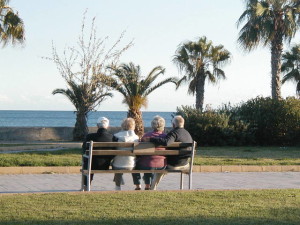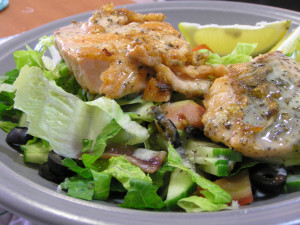Fasting is a confusing topic these days and so, I would like to un-confuse it.
Fasting is simply not eating for awhile.
The length of the fast is up to you and the specific purpose you are fasting for, i.e. weight loss, optimal health, religious reasons and the like are determined by your goals.
I didn’t think I would like it and I certainly did not think it was going to help me and man, I was wrong. I was able to train fasted, burn fat, and build muscle all while taking my body fat to it’s lowest percentage at roughly 10%. I was able to sleep just fine and I kind of grew to like it.
I don’t always fast, just at certain times of the year, mostly spring through fall and some winter, but when I’m training harder, I don’t fast quite as much. Not to imply that I don’t train hard, just different goals at different times of the year.

Fasting is not for every one, but if you’ve never tried, you won’t know for sure because fasting has many health benefits as you can see below.
1. A physiological phenomenon occurs in the fasted state where more human growth hormone is produced naturally and Lipolysis or natural fat burning occurs more readily. There is a slight adrenal improvement, along with improving insulin sensitivity which potentiates muscle building.
2. When you add exercise, there is also increased muscle recycling or detoxification, suppressing mTOR, which controls cell growth and metabolism in response to nutrients, and then unleashes it like a spring.
3. There is also an increase in Neurogenesis which is the development of new pathways in the brain. There is an increased cellular stress response, enhanced recovery and best of all, fasting decelerates the aging process!!!

There are 3 main ways to fast
Method #1: Intermittent Fasting – This is once a week where you don’t eat for 24-32 hours. Note – Do this on a non-training day. The rest of the week, you eat to ensure your goals. For a 24hr fast, eat dinner at 7pm Saturday Night, and not again until 7pm Sunday.
Advantage – You only do it once a week and sleep for 8 hours of it.
Disadvantage – It’s a longer fast, which will test you mentally.
Method #2: Micro Fasting – A Daily, 16 hour fast. Essentially, you skip breakfast and resume eating around 12 -1pm up until 7pm. Afternoon; you have 2-3 meals with your caloric requirements fulfilled in those meals. You can workout on an empty stomach as well.
Advantage – The hormonal and physiological responses of the training to the body in a fasted state.
Disadvantage – You have to do it more frequently. I will tell you that personally, I enjoy micro fasting the most.
Method #3: Controlled Fasting – Daily, but, this isn’t really ‘fasting’ because you are allowed to eat throughout the day, however, you only intake minimal sustenance or very ‘light’ eating for 20 hours a day, with a 4 hour period to ‘overeat.’ For example, between 4-8pm, you can ‘overeat’ to get your daily caloric intake but the rest of the next 20 hours you are eating very little or nothing at all.
Advantage – The ‘pig fest’ mentality. Something primal about working hard all day and enjoying a large meal at night.
Disadvantage – This isn’t a true fast, so some fasting benefits are nullified.

To wrap this up, fasting needn’t be complicated. Just skip a meal here and there, or a day of meals, or most of the day and resume eating when you’re truly hungry, not bored.
This will test your mettle and you might even feel a little deprived, however, deprivation will increase your capacity for all things. Deprive yourself of food and you will respect it more than you ever have before.
As that saying goes: You are what you eat, or…don’t…
Who knows, you may just end up feeling better and getting better results than you ever have before.
If you liked this post and want more material to satisfy your knowledge appetite (don’t fast on knowledge) then Click Here to get my 2 Best Health Reports, FREE!
And if you want to do some fasting, comment below and let me know how I can help!

WARNING: This post might get me in trouble with my good friend, but it’s something I’m passionate about… So here goes:
I honestly believe in ALMOST everything Mr. B has to say here. It’s another great post with great information, coming from a great source. I truly and honestly believe so.
BUT, I disagree with one thing Mr. B has to say :
Under the Fasting Method #1 – Mr. B states that as a Disadvantage :
“It’s a longer fast, which will test you mentally.” How is this a disadvantage?
Mr. B likes to promote STRENGTH, his company’s name is Bair Knuckle STRENGTH,
So why would you neglect strengthening your mind? A Strong Mind and a Strong Body go hand in hand (I believe).
Mental Toughness is a HUGE part of my own training, and something I incorporate into my life DAILY.
This is absolutely not a disadvantage in any way, shape, or form. If you cannot go say 16 hours without eating (unless you have some underlying medical issues) then you need to reassess. (In my opinion)
Again, these are JUST MY TWO CENTS, and in NO WAY represents the thoughts or feelings of John Bair or Bair Knuckle Strength. .
Matt, Thanks so much for the feedback!
You’re definitely not wrong there.
Fasting for 24 hours will build mental toughness, and that is not a disadvantage.
The disadvantage comes when somebody new attempts a 24 hour fast, only to fail miserably because it’s too much too fast and instead of building toughness, they build bitterness.
We don’t want someone who is new to fasting to be discouraged on the first day and just give up.
Instead, we start them slow and build up to a longer fast, thus, building confidence and mental toughness along the way.
Hope that makes sense, and again, I appreciate your thoughts!